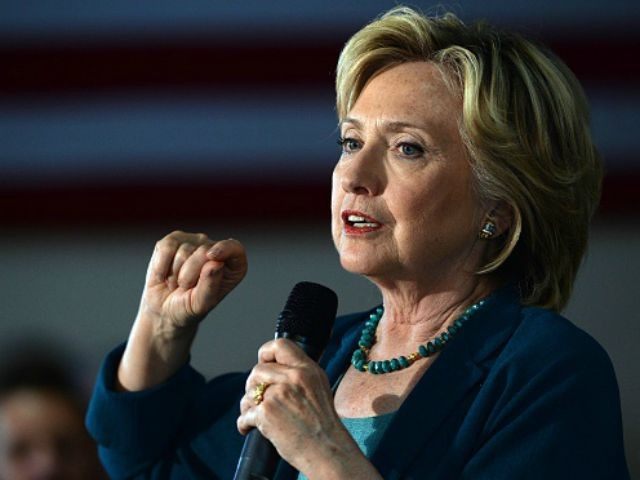Apparently, Democratic presidential candidate Hillary Clinton doesn’t live up to her own expectations when it comes to bipartisan leadership.
Hillary Clinton ended her opening statement at Thursday’s Benghazi committee hearings with an emotional call for more bipartisan leadership. It’s a far cry from her big applause line during last week’s Democratic debate when she picked “Republicans” as the enemy she was most proud of having made, even choosing the GOP over the terror-funding theocracy of Iran.
Clinton concluded her opening statement by recounting the pride she had when traveling abroad as Secretary of State. With a quavering voice, she said, “I traveled to 112 countries as Secretary of State. Every time I did, I felt great pride and honor representing the country that I love.”
America, according to Clinton, needs more bipartisan leadership, “We need leadership at home to match our leadership abroad. Leadership that puts national security ahead of politics and ideology.” She continued, “I know it’s possible to find common ground because I’ve done it.” In closing, she implored the Benghazi committee to, “rise above partisanship and to reach for statesmanship,” saying it was what she hoped everyone in the room would strive for “into the future.”
That’s quite a departure from her statement during the Democratic debate just last week. Asked to name the enemy she was most proud to have before a national television audience of millions, Hillary replied, “Well, in addition to the NRA, the health insurance companies, the drug companies, the Iranians—probably the Republicans.” This brought cheers from the studio audience and was endorsed as a sound strategy by MSNBC’s Rachel Maddow.
https://youtu.be/5IlFlVhBFL8?t=47s
Clinton walked back her partisan applause line later in the week, telling the Boston Globe it was “a little tongue in cheek.” She promised that, after the election, she would, “start trying to bring people together.” Of course, the Boston Globe interview got millions fewer eyeballs than the debate.
And it’s not the first time Clinton’s pendulum has swung wildly on this issue. In August, Clinton compared the GOP to “terrorist groups” because they oppose Planned Parenthood. Just one day later, she went even further, suggesting some of her opponents wanted to round up illegal immigrants and deport them in “boxcars.” She was implicitly comparing her GOP opponents to the Nazis who rounded up Jews and placed them in boxcars to be sent to labor and extermination camps during WWII.
Just a couple days after suggesting her opponents were akin to terrorists and Nazis, Hillary did an about face. She told a select crowd gathered for a pancake breakfast fundraiser in the Hamptons, “I don’t believe that elections that are going to result in leadership decisions should be about personalities, should be about insults, should be about rhetoric, should be about a lot of what we see going on in this campaign.”
It seems Hillary Clinton’s view of bipartisanship is largely situational. When it suits her, she’s willing to publicly compare Republicans to Nazis and terrorists or, at last week’s nationally-televised debate, to simply call them her enemies to wild applause. But, called before a congressional committee to explain herself, Clinton is lecturing members of the same party on the need to “rise above partisanship.” Calling her act hypocritical doesn’t begin to cover it.

COMMENTS
Please let us know if you're having issues with commenting.